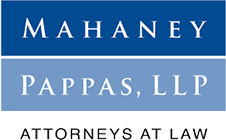 Employees in Massachusetts, who are injured on the job, have a lot of questions when an injury prevents them from working and making money. These injured workers often ask:
Employees in Massachusetts, who are injured on the job, have a lot of questions when an injury prevents them from working and making money. These injured workers often ask:
- What should I do when I’m injured at work?
- Who will pay my medical bills?
- Will I be paid while I’m out of work?
- How much and when will I get paid?
These are all great questions and it is extremely important to know the answers if you are hurt on the job. While I cannot possibly get into the details of all the specific situations that may occur in workers’ compensation cases, below is a summary of the process and steps taken in the standard Massachusetts workers’ compensation case.
What Happens After I am Injured on the Job and Unable to Work?
An employee that suffers a serious injury in a work related accident often worries about how he or she is going to provide and support their family or pay the medical bills if they are unable to work. Our laws here in Massachusetts require employers to carry workers' compensation coverage for injured employees. This insurance coverage provides available benefits to an injured employee after a work accident. So, the most important thing to do after being injured on the job is to get the proper medical attention. The proper medical care should be the primary concern right after an accident because it is a medically wise decision for your health and supports or lends credibility that you were injured on the job.
In situations where an employee is injured in a work accident, but doesn't go to the hospital or see a doctor right away, gives the workers' comp insurance company the ability to argue that the employee wasn't hurt on the job. This can create an issue with a workers' comp claim and result in the delay in payment of disability benefits.
After an employee is hurt on the job there are certain things that happen before an injured employee receives payments. First, when an injured employee is unable to earn full wages for five (5) or more full or partial calendar days due to a work related injury their employer has seven (7) days, not including Sundays and legal holidays, from the fifth date of loss, to report the injury to its workers’ compensation insurance company. Once the insurance company receives the first report of injury from the employer they will then have fourteen (14) calendar days to either pay the injured employee or notify them that they deny payment of disability benefits or medical benefits. If an injured employee hasn't heard from an insurance company and thirty (30) days or more has passed since the first date of disability, then the injured employee can file an Employee's Claim for benefits.
What if I am Denied Workers’ Compensation Benefits?
If an injured employee receives a denial from the insurance company (Form 104) then the injured employee can file an Employee's Claim for benefits, even before the expiration of 30 days. The Form 110 Employee’s Claim is the document that must be properly prepared and filed with the Department of Industrial Accidents in Massachusetts along with other necessary evidence to begin the claim process. When the employee files a claim, he or she is taking court action to have a judge force or order the workers’ compensation insurance company to pay disability benefits and medical benefits.
What Happens After I File an Employee’s Claim for Benefits?
When an employee (or their attorney) files the claim for benefits, their workers' comp claim goes through a process at the Massachusetts Department of Industrial Accidents (“DIA”). The following sets forth the different steps the claim goes through at the DIA.
Conciliation
First, the DIA will schedule the matter for a Conciliation. A Conciliation is an informal meeting between the injured employee and their employer’s insurer. Usually, the employee’s lawyer and the insurer’s lawyer attend this meeting. Most times the injured worker does not need to attend the Conciliation if they have a lawyer. At this meeting, a conciliator makes sure the claim is viable and discussions are usually had to try to resolve the dispute. Any discussions or results of the conciliation are not binding unless they are specifically agreed to by the parties.
If the claim is not resolved, the conciliator will refer the claim to an Administrative Judge at the DIA for a Conference.
Conference
If the employee's claim is referred by a conciliator to an Administrative Judge, the DIA will schedule a Conference. A Conference is an oral argument before an Administrative Judge, which is somewhat informal. At the Conference the employee (or their attorney) will present the Judge with medical records or notes that support the work accident, the injury, and resulting disability that renders the employee unable to work. Likewise, the insurer’s attorney will also present evidence to the Judge to argue against the payment of benefits.
After the Conference, the Judge will issue a temporary Order indicating whether or not the insurer must pay the injured worker disability benefits and/or medical benefits. Upon the issuance of a favorable temporary order for the payment of disability benefits, the insurance company must send payments to the injured employee within fourteen (14) days of the Order.
The Judge’s Order can be appealed by either party, if they are not satisfied with the result.
Hearing
If the Judge’s Order is appealed by either the injured employee, the insurer or both, the case will be scheduled for a Hearing. The Hearing is a more formal presentation of evidence on the claim before the Administrative Judge. Hearings are basically regular trials. At the Hearing witnesses are called to testify and are subject to cross-examination by the other lawyer.
After the Hearing, the Administrative Judge will issue a decision either for the payment of benefits or denying benefits.
Review Board
The parties may appeal the Administrative Judge's decision made after the Hearing to the Review Board. The appeal must be filed within thirty (30) days. At the Review Board, three (3) Administrative Law Judges will examine the hearing transcripts of witness testimony and sometimes request legal arguments. The Review Board can overturn the Administrative Judge’s decision only if the decision was beyond the Administrative Judge's authority, conflicted with the law, or was without any justification.
There is a lot that is involved in filing for and pursuing workers’ compensation benefits. This is why an injured employee should speak with an experienced Massachusetts workers’ comp lawyer. An experienced lawyer known for getting results can help an injured worker file the claim, advise the employee on what should be done while the claim is pending, and expedite the process to help obtain payments for the employee sooner rather than later.

 A work accident isn't something most think about often until it happens to them. This is why injured workers typically have many questions and concerns after being seriously injured on the job. If you were hurt at work, you should have a good understanding of the workers’ compensation process and benefits available in Massachusetts. The experienced workers’ compensation lawyers at Mahaney & Pappas, LLP, are here to help you during this difficult time.
A work accident isn't something most think about often until it happens to them. This is why injured workers typically have many questions and concerns after being seriously injured on the job. If you were hurt at work, you should have a good understanding of the workers’ compensation process and benefits available in Massachusetts. The experienced workers’ compensation lawyers at Mahaney & Pappas, LLP, are here to help you during this difficult time.